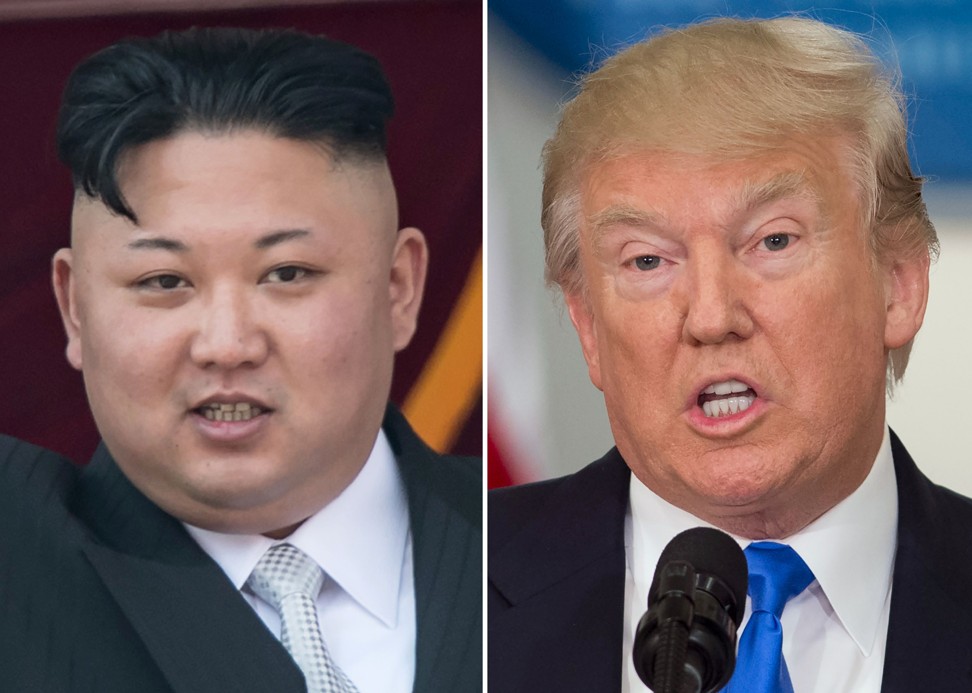
What should investors do in times of geopolitical uncertainty? Don’t worry about it
The best action for investors during extreme geopolitical crisis is to do nothing. Why change your strategy if the chance of the crisis is low? If it’s extreme enough, your portfolio should be the last thing you need on your mind.
“If China is not going to solve North Korea, we will.” 2nd April 2017.
“North Korea best not make any more threats … They will be met with fire and fury like the world has never seen.” -- 8th August 2017, US President Donald Trump
At midnight on 2nd August 1990, the Bahrain representative of the investment company that I worked for heard Tornado strike jets flying overhead fast and low.
Being a military man, he could tell the difference between a loaded bomber and a training flight. He telephoned the Tokyo office, the only one opened at that time, saying “the Gulf War’s started.”
The message was lost under some papers and not found until lunchtime. By then, the Tokyo stock market was up. We would have sold if we had received the news in time.
Baron Nathan Rothschild said in 1810 that one should “buy on the sound of cannons, sell on trumpets”. He had learned this mantra from the Napoleonic Wars, when conflicts were frequent. Markets fall on threats of war, so buy; and then the peace rally provides an opportunity to sell. Repeat. Skirmishes are trading opportunities.

On cue, the Hang Seng Index took fright at the threat of rockets in North Asia, slumping nearly 4 per cent in just three days, and met trumpets with a 2 per cent jump as peace broke out.
Except it hasn’t. This time, it was not thought credible that Kim would be able to send a projectile accurately 3,400 kilometres. The chances of it landing in the seas around Guam, rather than on Japan or China, were about as high as Kim wearing a pink dress.
Next time it will be more serious. In recent months, his rockets have gone through a step change in quality. In April, I wrote in these columns that a pinpoint, counter-proliferation, pre-emptive U.S. strike could put North Korea’s nuclear programme back a decade.
The thought provoked a storm of comments on SCMP.com,with people quite rightly pointing out that Kim is so deluded that he might take his vengeance out on South Korea – perhaps even with nuclear warheads.
So we should stand by and watch something worse happen later? The price of peace is eternal vigilance. It is because Peter Pan has grown up in a country that lauds him as a god (see all newspaper pictures) that he really does believe that he can beat the U.S.
Donald Trump, who gives the impression that he too is still in short trousers, has achieved something remarkable. He has out-threatened the most threatening man in the world and made him back down. At the moment, this has calmed the nerves, but like a kid, Kim will quietly work even harder to make his launch vehicle, guidance systems and warheads more reliably deadly.
I think it is central in Trump’s mind that only a pre-emptive strike -- or pressure from China -- will stop Kim. China could make the lights go out in Pyongyang and/or replace Kim as leader tomorrow. China could give the North Korean people the prosperity that the Chinese Communist Party has given its own.
Yet Chinese policy on Korea is stuck in a Cold War no-man’s land with the world changing around it. The need for China to have a buffer between it and Japan ended, when China became the worlds’ second superpower, economically and probably militarily. China no longer needs to support a dangerously rogue buffer state on its border for its own protection.
But, like Kim and Trump, China will back down imperceptibly so as not to lose face. They would not admit it, but encouraged by Trump’s belligerence, they told Kim to back off. Will they be able to control him next time?
But this is a business column, and the incident made a very important point about what investors should do in times of geopolitical uncertainty.
Markets are not at their best when pricing extreme events, for there is little history about how they will impact markets or economies.
So the best action for investors to take on extreme geopolitical issues is… to do nothing. Why change your investment strategy if there is a low chance of the event happening?
And if it is an extreme enough event, we won’t have to worry about our portfolios anyway.
Richard Harris is a veteran investment manager, banker, writer, broadcaster, and financial expert witness.

